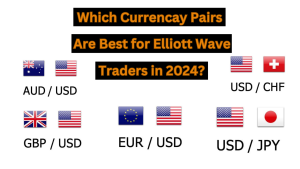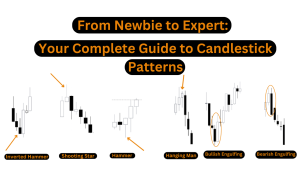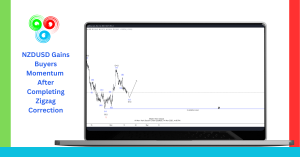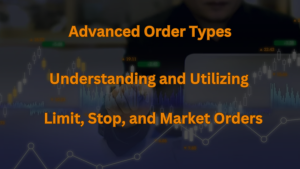Hello, Elliott Wave Adjust family! Welcome back to our Website., Today, we’re spilling the tea on Proprietary Trading Firms. Are they your ticket to riches, or is there a catch? Stick around as we break it down in a simple chat.”

Part One: The Evolution of Prop Trading Firms
Before we get fancy, let’s go back to the basics. What are these Proprietary Trading Firms, and why should we care? Let’s keep it simple as we take a stroll through their history.
Before we get on their history. what is Proprietary trading firm? by definition, Proprietary trading refers to a financial institution using its own capital, rather than client funds, to conduct financial transactions. Typically, traders’ earnings at proprietary trading firms are based on their performance, and profits are split between the trader and the firm.
Alright, let’s kick it off with a bit of history. Picture this – it’s way back in the 20th century. The stock market is buzzing, and a bunch of finance-savvy folks decides to shake things up. Enter Proprietary Trading Firms, or Prop Trading for short.
These firms didn’t start with a bang. Nope, they quietly began as in-house trading desks for big financial institutions. Their job? To trade with the company’s money, not yours or mine. Fast forward to the ’80s and ’90s, these guys thought, ‘Hey, we’re good at this. Why not do it for ourselves?’
And just like that, Prop Trading Firms stepped into the spotlight. They started playing with their own cash, taking risks, and making some serious moves in the financial game. With computers getting smarter and faster, these firms became wizards of algorithms and high-frequency trading.
But, hold up! As much as they dazzled with success, there were whispers of shady practices. Some said they were manipulating markets, others accused them of playing dirty. And that’s where the ‘fortune or fraud’ debate began.
So, why should we care about their history? Because it sets the stage for what comes next. Are they the heroes of finance, or is there a twist in this tale? Stick around as we unravel the story of Proprietary Trading Firms from humble beginnings to the controversial present.”
Proprietary trading firms, or prop trading firms, are a mysterious entity in the financial realm. Some see them as a pathway to immense wealth, while others raise eyebrows, questioning their legitimacy. Today, we’re on a mission to unravel the hidden truths behind these financial powerhouses.
The Rise of Prop Trading Firms
let’s look back then, how They Rise these Prop Trading Firms, Proprietary Trading Firms, or Prop Trading, have become synonymous with the financial landscape. These firms use their own capital to trade financial instruments, promising substantial returns. But, is this too good to be true?
Part Two: Tricks They Make with in the Trade
Now, let’s talk strategies. These firms have some tricks up their sleeves – from computer stuff to fast trades. Are these tricks a win or a whoopsie? Let’s find out.
Many are drawn to Prop Trading Firms by the allure of quick fortunes. High leverage, advanced algorithms, and cutting-edge technology – the perfect recipe for success, or is it? Let’s uncover the strategies that make these firms seem like financial wizards.
In my experience most of prop firms trick traders in some of these steps.
Step one: using specialized software to hinder profitable trading through delays and slippage. slippage means. is when the price at which your order is executed does not match the price at which it was requested.
This most generally happens in fast moving, highly volatile markets which are susceptible to quick and unexpected turns in a specific trend.
Step Two: High Leverage. some prop firms offer high leverage ratios, allowing traders to control larger positions with a relatively small amount of capital. While this can amplify profits, it can also increase the risk of significant losses.
Step Three: Unrealistic Profit Claims. beware of prop firms that make unrealistic profit claims or guarantees. Trading involves inherent risks, and no firm or trader can guarantee consistent profits.
Step Four: Misleading Marketing. be cautious of prop firms that use overly aggressive or misleading marketing tactics, such as promising guaranteed profits or downplaying the risks involved in trading.
Part Three. Exploring the Fortune Side
Let’s start with the positive side – the fortune. Many individuals have achieved remarkable success by joining prop trading firms. Let’s see some of these traders,
this is Pasquale. he is one of the most profitable traders in this space, and he took over 2.5 Million in payouts across different prop firms.
From turning a few hundred dollars into thousands to gaining access to cutting-edge trading tools, these traders have found their fortune through prop trading firms.
There are also other traders on Elliott wave adjust community who reach potential success in this space, and they make over 30% profit every year, but unfortunately, we were not able to interview them, but we will bring them here soon to share us their success stories.
But, hold up! You might be thinking that 30% is a big deal.
I say to you! Yes, 30% is a big deal.
Let’s assume your account is $100,000. and you generate 30% profit every year. which means you earn $30,000, it is not easy to make 2.5% profit every month in this forex market. So you are five figure income trader! Enough with the fancy stuff. We’re checking out real stories. Who hit the jackpot, and how did they do it? Get ready for some real talk about making that moolah.
Let’s see another success story.
Part Four. Exploring the another Side
what about the darker side? Allegations of market manipulation, insider trading, and opaque practices have cast a shadow over Prop Trading Firms. Are they playing by the rules, or is there a fraudulent underbelly we need to be aware of?
The proprietary trading industry, like many financial sectors, has a darker side that potential traders and investors should be aware of. While not all prop firms engage in unethical or questionable practices, some have been associated with behaviors that can harm traders and tarnish the industry’s reputation. Here are some aspects that represent the darker side of prop firms.
- High Pressure and Toxic Culture. Some prop firms create a high-pressure environment that can lead to excessive stress, burnout, and unhealthy competition among traders. This culture can prioritize short-term profits over long-term success and well-being, leading to poor decision-making and unethical behavior.
- Exploitative Contracts. Some prop firms offer traders exploitative contracts that heavily favor the firm over the individual trader. These contracts may include unfavorable profit-sharing arrangements, excessive fees, and restrictive terms that limit traders’ ability to operate independently or profitably.
- Lack of Transparency and Accountability. Certain prop firms operate with a lack of transparency, making it difficult for traders to understand the firm’s operations, strategies, and financial health. This lack of transparency can lead to mistrust, misinformation, and potential fraud.
So. while there are reputable and ethical prop firms in the proprietary trading industry, it’s essential to be aware of the darker side and potential pitfalls associated with certain firms and practices. Traders and investors should conduct thorough due diligence, seek independent advice, and prioritize their financial and emotional well-being when engaging with prop firms or considering career opportunities in the industry.
Oops, They Did It Again
Oops. They Did It Again. this is what I have been warning you. time for some drama. We’re spilling the tea on scandals and oops moments in Prop Trading. Is it just a few bad apples, or is there a bigger problem? Let’s dish.”. Is it just a few bad apples, or is there a bigger problem? Let’s dish.”
Of course Risk is part of the game. But, it is very important to choose right one,
decent prop firm who is capable enough even after you pass to give you funded account instead
of claiming you, you were breached the rules or something like that, even though you didn’t bridge anything, you know what i mean.
I would recommend you even if you pass the challenge and get funded don’t make over 10% profit a month even if you can.
Why am I saying that to you?
When they see that you are doing a good percentage, they will blame you of breached the rules like Andrew.
the High percentage profits can often be associated with high-risk trading strategies. prop firms don’t like traders who make High percentage profits.
We will make another video in that topic.
It’s crucial to hear both sides of the story. Some traders have faced unexpected hurdles, and we want to bring their experiences to light. Transparency is key, especially when it comes to your hard-earned money.
Part Five: Regulation and Oversight
Hold on, we’re not done. What about rules and big bosses keeping an eye? Let’s break down
To understand the full picture, we must scrutinize the regulatory landscape. How are Prop Trading Firms regulated, and what oversight measures are in place to protect investors? Join us on this journey through the regulatory maze.”
Regulations governing proprietary trading firms (prop firms) vary by jurisdiction, but they generally aim to ensure market integrity, protect investors and traders, and maintain a stable financial system. Here’s an overview of some common regulatory aspects and considerations for prop firms.
The Most important one is Licensing and Registration: In many jurisdictions, prop firms are required to register with relevant regulatory authorities and obtain necessary licenses to operate legally. Regulatory agencies such as the U.S. Securities and Exchange Commission (SEC), Commodity Futures Trading Commission (CFTC), Financial Conduct Authority (FCA) in the UK, and other similar bodies oversee and supervise prop firms to ensure compliance with applicable laws and regulations.
It’s big topic We will try to make another video in that topic.
Part Six: Balancing Act – Risk vs. Reward
Last but not least, let’s talk balance. Is the money worth the risk? Or is it a risky business that could leave you in the red? We’re breaking it down in plain English.
investing hard-earned money in proprietary trading firms can be rewarding for investors who conduct thorough due diligence, assess the risks and rewards prudently, align their investment objectives with the firm’s business model and performance, and maintain a diversified portfolio strategy. However, it’s essential to exercise caution, remain vigilant, and prioritize capital preservation, risk management, transparency, and ethical conduct when considering investment opportunities in the prop trading industry.
if you want to going down the prop firms route.
you have got to focus on the process of trading.
you have got to understand, how to trade properly.
we all have winning trades.
we all have losing trades.
trading is much more than that.
it is about the process about the psychology.
so you need to get yourself educated.
I think, before you waste any more money doing these challenges.
some of which you pass some of which you will fail.
get the education, treat this like a business.
whether it’s your own funded account or whether it is a prop.
it is still a business, if it’s not then why waste your time.
Conclusion
As we conclude our journey into the hidden truth behind prop trading firms, one thing becomes clear – it’s a complex landscape with both fortunes and pitfalls. The key is to navigate it wisely, understanding the risks and making informed decisions.
Making money with prop firms is possible if you are a skilled and consistent trader with a proven strategy. But keep in mind that prop firms only fund a small percentage of traders. You need to meet their criteria and align with their trading style. And remember, evaluation is a two-way street: you need to assess whether your choice of prop firm is a sensible one and prudent for your long-term financial success.
When evaluating the risk associated with trading with a prop trading firm, several key factors should be considered. These include the firm’s regulatory status, track record, industry reputation, and level of transparency. Conduct thorough research on the firm’s history, financial stability, risk management practices, as well as information about their CEO and Founder. Additionally, be vigilant for any potential conflicts of interest. Seeking legal advice is advisable to gain a deeper understanding of the risks involved and to safeguard your interests.







